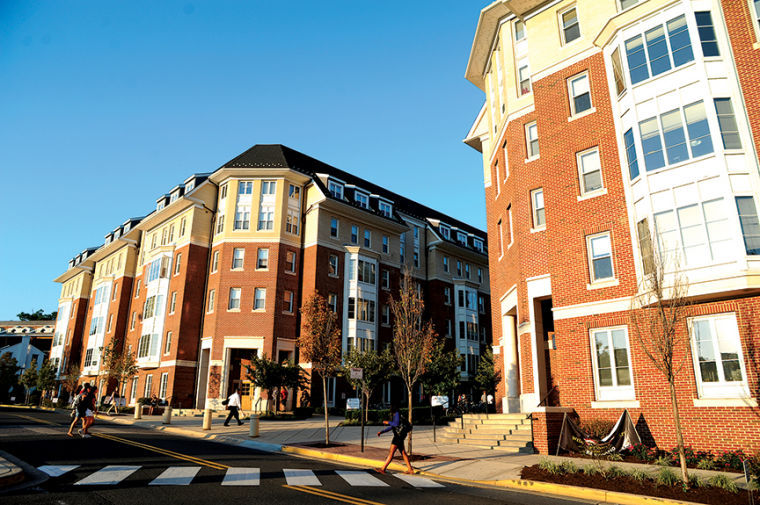Views expressed in opinion columns are the author’s own.
One of the more contested concepts in today’s political discourse is the term “neoliberalism.” The confusion over what exactly neoliberalism is supposed to mean is reasonable. Many on the left use the word to smear folks in the Democratic Party mainstream. Others refer to the “neoliberal turn” of global politics in the 1970s and 1980s, when right-wing politicians such as Margaret Thatcher and Ronald Reagan rode into power, bringing the post-World War II social democratic compromise to an end. The intellectual historian Quinn Slobodian frames neoliberalism as an effort to create institutions, from the European Union to the World Trade Organization, that protect global markets from national government interference.
I think all of these ways of understanding neoliberalism have some utility. But one can also conceptualize neoliberalism as a way of thinking defined by market logic. In recent decades, the logic of the market has come to dominate public policymaking. We evaluate public spending based on its return on investment. We shrink and means-test welfare programs because giving cash transfers to middle class folks isn’t efficient. In an age where most political figures share neoliberal assumptions, the idea of truly public goods — goods, such as libraries, parks and public schools, deliberately shielded from the market — fades from view. What’s more, the material consequences of neoliberal policymaking — namely, neutering the public sector — often leads policymakers to unwittingly adopt neoliberal habits of mind.
This brings me to the lack of affordable housing for students in College Park. The situation is dire: South Campus Commons, The View and The Varsity have all raised their rent this year. As enrollment rises, property owners are free to raise their rent, and students are so desperate for a place to sleep that they’ll pay exorbitant prices. A couple of new dorms are coming to North Campus, but the bed increase they’ll bring will be significantly offset when Carroll, Wicomico and Caroline halls close. There are also two private housing developments in the works — but one of the developers said their apartments will cost students an average $1,500 per month.
The interim chairman of the College Park Housing Authority, Bob Catlin, points to three possible solutions — his limited imagination is a perfect example of neoliberalism as a habit of mind. One, the University of Maryland could reduce its enrollment. But nobody really wants that, as the point of a public university, after all, is to educate a broad swath of the public. The second solution is for a ton of students to commute to school. But that’s less a solution to the affordable housing shortage than an avoidance of the problem.
And so, the third and best solution, according to Catlin, is to encourage developers to come to College Park. In the meanwhile, though, we just have to cross our fingers and wait for the housing supply to increase. It’s not ideal, but it’s the best we’ve got.
But is it? It’s telling that a fourth option didn’t come to Catlin’s mind: public student housing. The city could simply use some of the land it already owns and pay a construction company to build apartments on it. Then, the city could set rents at a reasonable rate and sell its units to students. Governments do this all the time, all around the world! There’s no reason why the city has to sit on its hands and hope a developer will suddenly decide to invest in truly affordable housing. There’s no need to rely on the market — there’s a public solution staring us right in the face.
Skeptical readers will likely respond that the city doesn’t have the money to build affordable student housing. And they’re probably right; such a project would probably require cooperation between the city and the university, as well as a jolt of state funding. In no way do I mean to point to Catlin’s answer as intentionally malevolent. But his argument is a great example of how neoliberal policies (austerity in housing and education policy) can lead to neoliberal thinking (a faith in market solutions). Market solutions aren’t really preferable in the affordable housing space, but when public funding streams have dried up, they’re all we’ve got. Public solutions don’t even come to mind.
I’ve been writing columns about this university for several years now. In years prior, I spent much of my energy criticizing specific university officials — especially President Wallace Loh. I don’t think any of those criticisms were wrong, exactly, but I definitely missed the forest for the trees. Lately, I’ve become convinced that many of this university’s problems share an underlying cause: austerity. Austerity not only hamstrings policymakers, both in the city and at the university — it cowers their thinking and limits their imagination. Bringing the austerity regime to an end and achieving a truly public university will first require getting the neoliberal poison out of our brains. It will require realizing that austerity doesn’t have to be permanent — but it won’t end without a fight.
Max Foley-Keene is a senior government and politics major. He can be reached at maxfkcap2016@gmail.com.



